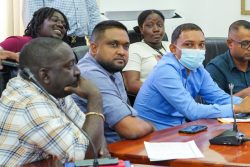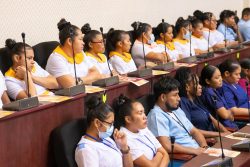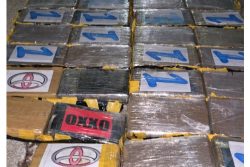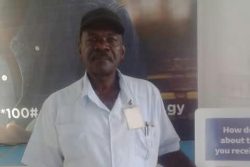Dear Editor,
I am very glad that Mr Trevor Atkinson in his letter captioned “Barama came in at a time when investment was badly needed and has been in the vanguard of sustainable forest management” (06.12.16) pointed out the harsh/cruel and difficult circumstances under which the Barama deal was negotiated with the Hoyte /PNC Govt. Under the Burnham/PNC regime the economy had collapsed, educational and health services had severely deteriorated, and people were fleeing to wherever they could in search of a livelihood, etc.
This dire situation existed all over the country, and as Mr T. Atkinson so graphically pointed out, the situation was even worse in the interior communities. Subsistence living was the norm of our people. We were in dire poverty – for the first time comparable to the chronic poverty situation in Haiti. (The staggering national debt was $2 billion, a sum 10 times Guyana’s gross domestic product.)
When Mr. Desmond Hoyte took over the reins of government he was therefore faced with enormous problems – economic, social, crime, political, loss of trained personnel etc. The political situation was still unstable – jostling for leadership within the party, the angry voices of the extremists, and those who grew up with the ‘culture of entitlements’ were demanding their shares. Because of the lack of democracy, since his government was not democratically elected, it was difficult to attract desirable foreign investments, as Mr. Atkinson so rightly pointed out.
Therefore in order for Mr. Hoyte to get any foreign investment he had to make major concessions with the less attractive and/or reputable companies.
He was faced with some very difficult choices. Barama knowing the prevailing conditions had the upper hand, and therefore drove a very hard bargain. Mr. Winston King (Mr Hoyte’s negotiator) was outmatched.
The bottom-line was that Guyana got sucker punched. Dr. M Colchester (Guyana, Fragile Frontiers. Pub.1997, page 102) said: “The Barama agreement grants the company, a 25-year lease – automatically extendable for a further 25 years








